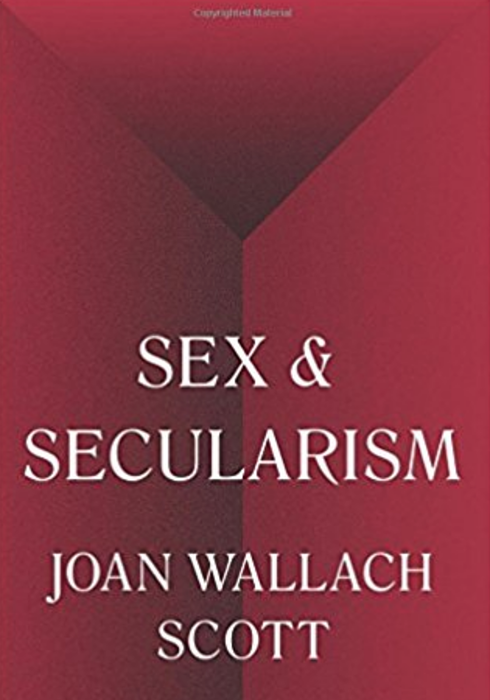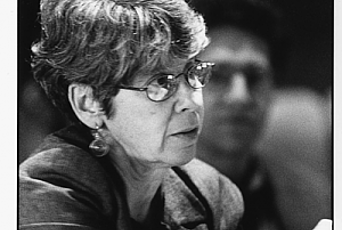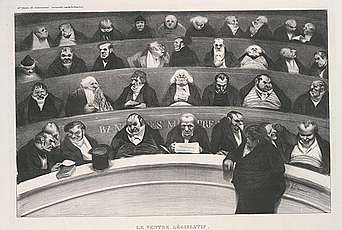Joan Wallach Scott, Professor Emerita in the School of Social Science, has authored Sex and Secularism (Princeton University Press, 2017), which draws on a wealth of scholarship by second-wave feminists and historians of religion, race, and colonialism to show that the gender equality invoked today as a fundamental and enduring principle was not originally associated with the term “secularism” when it first entered the lexicon in the nineteenth century.
An excerpt from the Spring 2018 Institute Letter:
"Attention to secularism has again entered popular discourse as part of the “clash of civilizations” rhetoric. Of course, there is a long history of academic study of secularization, the processes by which European states are said to have brought organized religion under their control, introduced bureaucratic management and technical calculation into their governing operations, and justified their sovereignty in terms of republican or democratic theory, that is, as representatives of the mandate of those considered citizens, not as the embodiment of God’s will. Secularism has been taken to be synonymous with these processes; the historical triumph of enlightenment over religion. But in its recent usage, it has had a simpler referent as the positive alternative, not to all religion but to Islam. In this discourse secularism guarantees freedom and gender equality while Islam is synonymous with oppression. Although some critics of Islam specify their target as political and/or fundamentalist Islam, most indict all of Islam in their condemnations. Thus, the idea of a “clash of civilizations,” as articulated by the political scientist Samuel Huntington in 1993, posed Western Christianity against Islam in a conflict that, he maintained, “had been going on for 1300 years.” In the article, he soon referred to Western Christianity simply as “the West,” and although secularism was not denoted as such, it was implicit in the contrasts that he offered between freedom and oppression. As the phrase “clash of civilizations” gained prominence, especially after 9/11, secularism and gender equality became increasingly emphasized as the basis for Western superiority to all of Islam. So in 2003, the head of the French commission recommending a ban on Islamic headscarves in public schools explained that according to the principle of laicite (the French word for secularism), “France cannot allow Muslims to undermine its core values, which include a strict separation of religion and state, equality between the sexes, and freedom for all.” In the same year, the American political scientists Ronald Inglehart and Pippa Norris argued that “the true clash of civilizations” was about “gender and equality and sexual liberalization.” The religious demands of Islam were said to deny both. Since then, the emancipatory effect of secularism on women had been so taken for granted that the American novelist Joyce Carol Oates expressed surprise at the criticism she got for tweeting that “the predominant religion of Egypt” was responsible for violence against women during the summer protests of 2013. It seems never to have occurred to her that misogyny of the kind responsible for the domestic violence that she often chronicles in her novels might be at issue, and that her comment be construed as Islamophobic, so self-evident did her opinion seem to her. Perhaps the most virulent attack on Islam in the name of secularism comes from a defiant French organization called Riposte Laïque (“Secular Retort”), which brings together groups from across the political spectrum to defend the republic from impending annihilation by the Muslim hordes. “When one is attached to the Republic, to democracy, to women’s rights, to freedom, to secularism, one has the obligation to be islamophobic simply because Islam cannot tolerate emancipatory values.” Here, by definition, secularism is associated with reason, freedom, and women’s rights, Islam with a culture of oppression and terror. In this formulation culture is reason’s other—reason assures the progress of history while culture protects immutable tradition."
Learn more at Princeton University Press.



